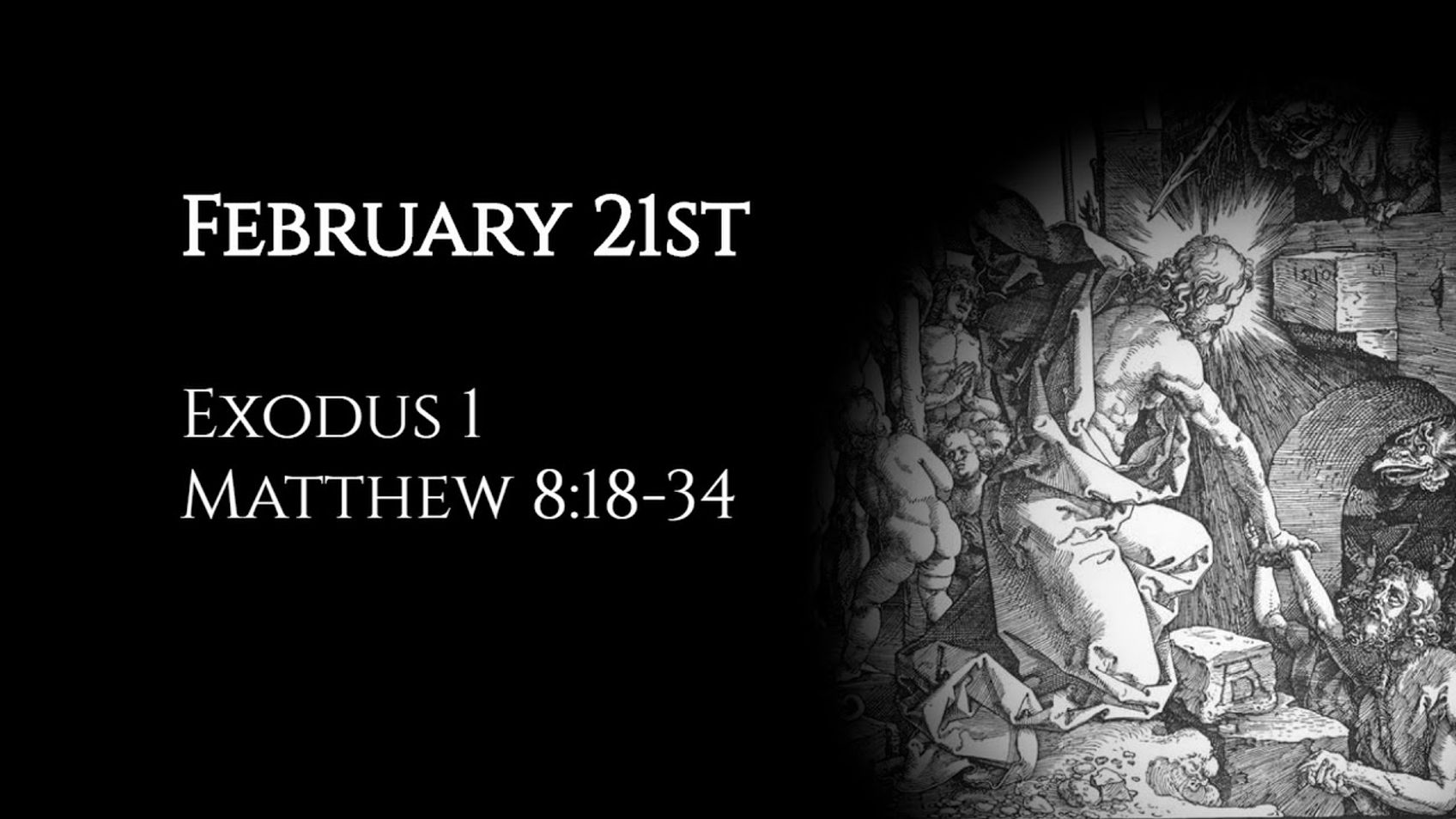February 21st: Exodus 1 & Matthew 8:18-34

The children of Israel multiply and Pharaoh's response. Calming the waves and delivering the Gadarene demoniacs.
Some passages referenced:
Genesis 46 (the list of those descending into Egypt); Genesis 35:23-26 (the order of the sons); Genesis 35:10-12 (the blessing of fruitfulness and multiplication given to Isaac); Exodus 15:27 (twelve springs of water and seventy palm trees at Elim); Genesis 1:28 (the blessing of fruitfulness and multiplication); Genesis 15:13 (God's statement to Abram that his descendants would be afflicted and enslaved).
Luke 13:32 (Herod the fox); Daniel 7 (Son of Man in Daniel); Matthew 27:51-52, 28:2 (earthquakes in Matthew); Matthew 9:27, 20:29-34, 21:1-7 (Matthew's pairings).
Reflections upon the readings from the ACNA Book of Common Prayer (http://bcp2019.anglicanchurch.net/).
If you have enjoyed my output, please tell your friends. If you are interested in supporting my videos and podcasts and my research more generally, please consider supporting my work on Patreon (https://www.patreon.com/zugzwanged), using my PayPal account (https://bit.ly/2RLaUcB), or by buying books for my research on Amazon (https://www.amazon.co.uk/hz/wishlist/ls/36WVSWCK4X33O?ref_=wl_share).
The audio of all of my videos is available on my Soundcloud account: https://soundcloud.com/alastairadversaria. You can also listen to the audio of these episodes on iTunes: https://itunes.apple.com/gb/podcast/alastairs-adversaria/id1416351035?mt=2.
More From Alastair Roberts


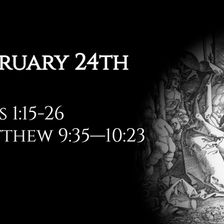
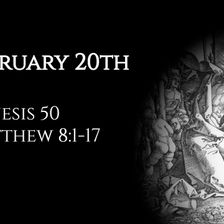
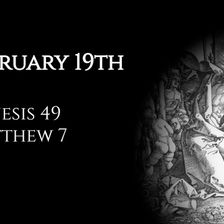
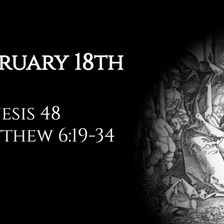
More on OpenTheo















